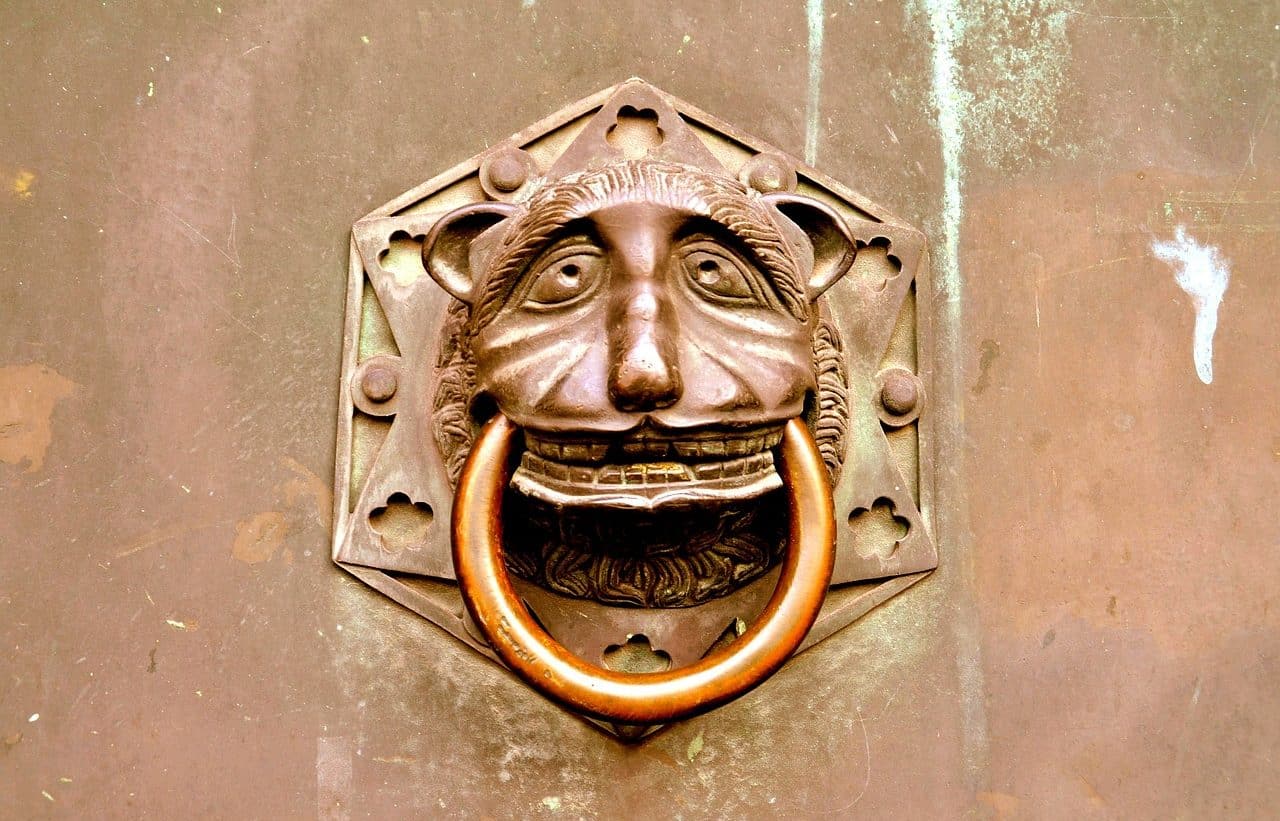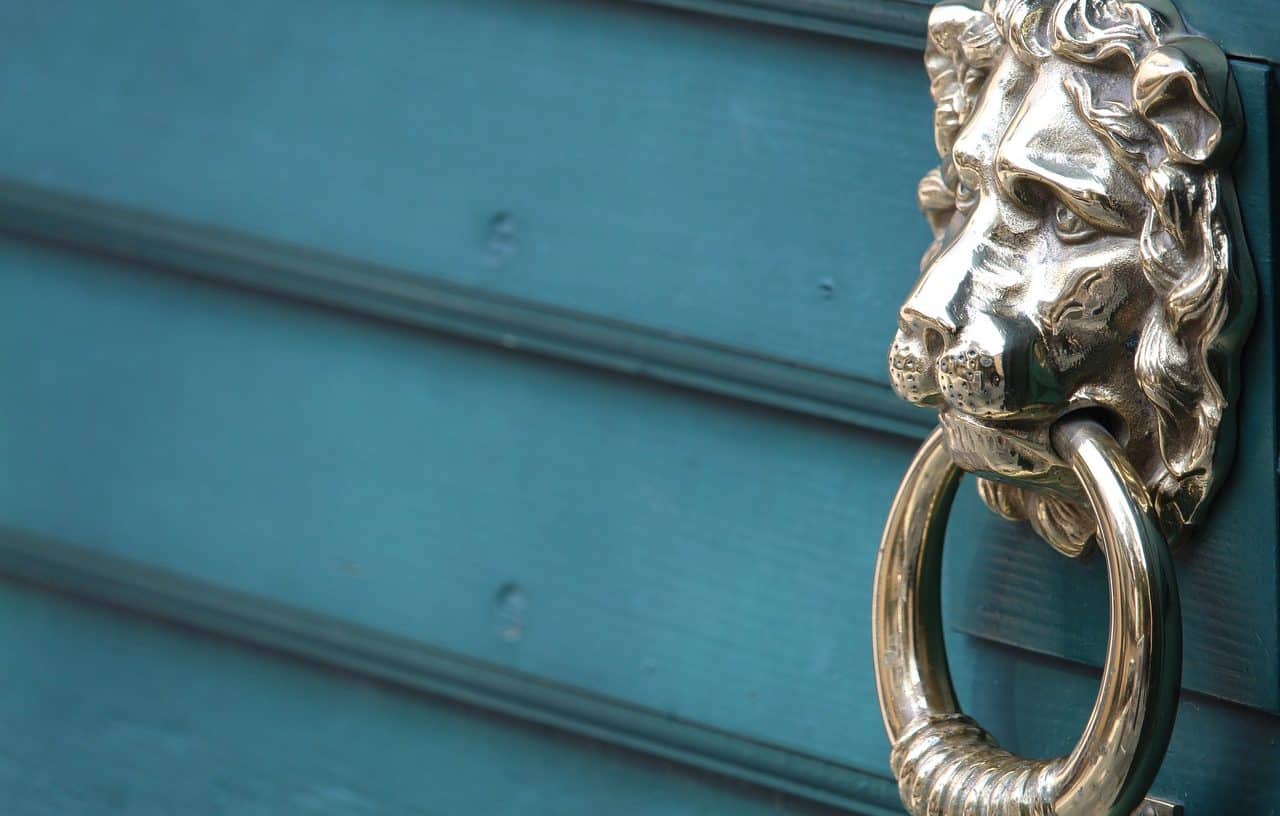
Knockers were used to knock on doors.
A knocker is a metal element that is installed on a door so that a person can knock with it and thus announce their arrival. In their origins, knockers used to have the shape of a reptile , hence the etymology of the term takes us to a classical Arabic word that can be translated as "lizard" .
Historians indicate that knockers emerged in the Middle Ages . They generally consisted of an iron ring linked to a head made of bronze . The subject who arrived at a place and found the door closed could take the ring and hit it against the door. In this way, it caused a noise that was heard by those inside the place. The knockers also functioned as handles to open the door in question.
According to the dictionary of the Royal Spanish Academy ( RAE ), the knocker can also be the wooden or metal bar that allows securing a door once closed or the piece of iron that is installed on a wall so that a cavalry can hold onto it. she.
History of the knocker
The knockers, over the years, began to become elements of great decorative and artistic value . Heads of animals and mythological figures were made, created with a great level of detail. Castles and churches in many countries had or have knockers on their doors .
Over time the knockers lost popularity. Today, knockers can still be seen in the cathedrals of Segovia ( Spain ) and Bayonne ( France ), among other buildings of historical importance.

The knockers also function as decorative elements.
Other information of interest
We must also highlight another series of curiosities or data of interest about knockers, among which are, for example, that long ago they had a very significant use: since they were very important elements in churches and cathedrals, they were used by the most needy to request asylum from religious people .
Among the most relevant knockers are those of the Arab door of Daroca Castle , which dates back to the 11th century and is today preserved in the National Archaeological Museum of Spain , which is based in Madrid . This without overlooking those of the Carlos V Palace of Granada.
Knocker as a name
In addition to everything indicated, it must be emphasized that there is an important store in Madrid that responds to the name of Aldaba . It is a large business that makes decoration products available to its customers that can give a unique touch to their homes or offices.
Not to mention that, in the same way, there is a magazine called "Aldaba" . It is a decoration publication that is quarterly and stands out because it has relevant awards granted by both the Latin American Design Association (ALADI) and the Dominican Association of Design Professionals (ADOPRODI) . Among its most relevant sections are Kitchens & Bathrooms and Charming Residences.
